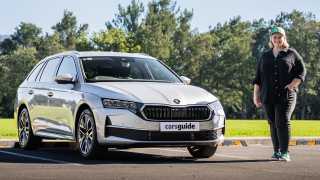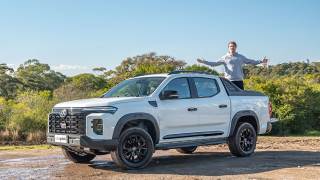
2022 Lexus NX plug-in hybrid date set: When the Toyota RAV4-related luxury SUV will be shown to the world
- Lexus NX
- Lexus NX 2022
- Lexus News
- Lexus SUV Range
- SUV
- Electric Cars
- Hybrid Cars
- Lexus
- Industry news
- Showroom News
- Prestige & Luxury Cars
- EV
- EVs
- EV News

Lexus will rip the covers off its first plug-in hybrid electric vehicle (PHEV) later this year and a bespoke electric car in 2022 as it marches toward a cleaner-emissions future.
Though details are yet to be confirmed, it is expected the PHEV model will be the new-generation Lexus NX, which will move to Toyota's TNGA platform, sharing teh same its RAV4 cousin.
However, it is expected that Lexus will make the necessary tweaks and additions to eleveate the NX to being a proper luxury SUV, including soft-touch cabin materials, and the latest in multimedia and safety technology.
The only clue to what powertrain could be underpinning the mooted NX PHEV is the plug-in Toyota RAV4 Prime, which pairs a 2.5-litre petrol engine with two electric motors for a 225kW output.
Read more about Lexus NX
- 2022 Lexus NX: Not just a Toyota RAV4! What's coming next for one of the most popular luxury hybrid SUVs
- 2021 Lexus NX accidentally leaked! New luxury version of Toyota RAV4 Hybrid gets an early mark with redesigned exterior and interior
- Can the new 2022 Lexus NX replicate the success of the Toyota RAV4 Hybrid?
With drive sent to all four wheels, the RAV4 Prime can accelerate from zero to 60mph (97km/h) in just 5.8 seconds, while the 18kWh battery is good for 63km of tailpipe emissions-free driving before the petrol engine kicks in.
As such, fuel economy for the prime is pegged at around 2.6 litre per 100km.
Though Lexus is yet to confirm any details, the luxury brand's new plug-in could borrow the powertrain from the RAV4 Prime with some minor tweaks, meaning, potentially, the same performance and fuel economy statistics.
The battery electric vehicle (BEV) meanwhile, will be Lexus’ first on a dedicated platform, and is expected to be a larger in size than the LF-Z concept revealed in March.
Details are still scarce on the model, but expect to see technologies such as a Direct4 all-wheel-drive system, dual-electric motors driving one axle each and an advanced steer-by-wire system.
The LF-Z concept boasts an output of 400kW/700Nm for a 0-100km/h run in just 3.0s, as well as a lithium-ion battery big enough for a 600km driving range when tested on WLTP standards, but whether this translates to the production model is still unclear.
Of note, neither of these models have been confirmed by Lexus Australia for the local market, but the brand’s first EV will be launching in late 2021 in the form of the UX300e.
Based on the UX small SUV, the 300e variant is fitted with a 150kW/300Nm electric motor for a 0-100km/h run in 7.5 seconds, while its 54.3kWh battery provides 400km of driving range (as tested on the dated NEDC standards).
Lexus has also surpassed two million global sales of its hybrid vehicles, which includes the CT 200h, UX, IS, NX, GS, RX, LS and LC.
In Australia, a third of the brand’s sales in 2020 were in electrified engines, while so far in 2021 that mix has crept up to nearly 40 per cent.










Comments